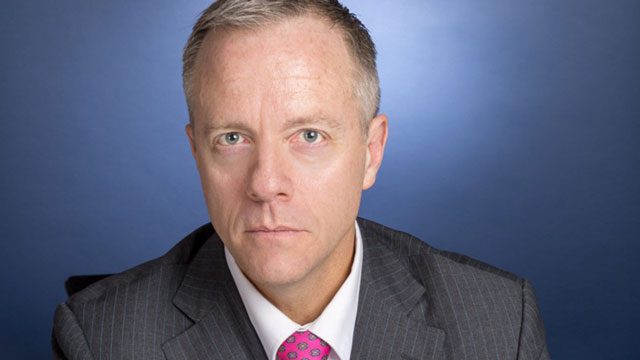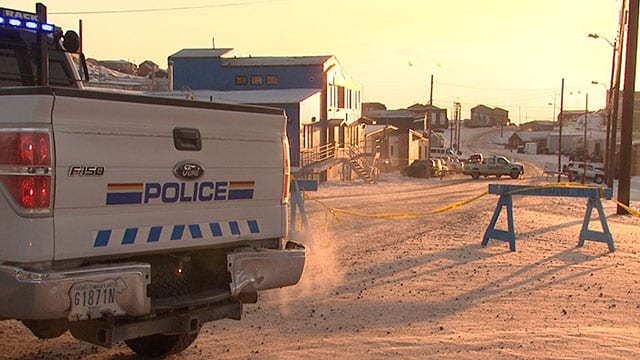
Nunavut health officials are defending their pandemic powers after receiving a complaint from the Canadian Civil Liberties Association (CCLA)
Chief Public Health Officer Dr. Michael Patterson said he didn’t see a scenario that would include using “warrantless searches” under the state of emergency triggered by COVID-19.
“To be perfectly honest, I can’t think of a reason that we’ll be using that (warrantless entry) power,” Patterson told reporters at a medical briefing. “That power was written into the Act, and it came into effect on January 1.
“Is it one that I’m going to be exercising in this circumstance? I don’t think so.”
Patterson was responding to concerns outlined in a letter to the Nunavut government by CCLA executive director Michael Bryant.
“Warrantless searches are unconstitutional in Canada,” Bryant said in a telephone interview Wednesday.
“We are getting reports of (broad powers permitted by pandemic protocols) disproportionately affecting Indigenous people.”

(The CCLA wants Nunavut to amend its COVID-19 order banning gatherings. APTN file)
Bryant said the CCLA, which has yet to receive a response from the Nunavut government, would be prepared to take the issue further.
“We’ve been in front of courts…and if the Nunavut government digs in and won’t make the changes we will go to court.”
But Patterson said his department has not used and does not plan to use “warrantless searches” to enforce social distancing. He said it’s simply part of a package of measures included in the legislation.
The changes to the Public Health Act became official three years after it was passed by the Nunavut Legislative Assembly. It replaces legislation inherited from the Northwest Territories (NWT) when the territories divided back in 1999.
“The intent when we put the Public Health Act into force in January, was for if somebody was non-compliant,” added Nunavut Health Minister George Hickes at the Wednesday briefing in Iqaluit.
“For example, if somebody did have a communicable disease – such as COVID-19 or tuberculosis – and were refusing to follow the guidelines put to them by physicians or by the medical staff that gives an opportunity to be able to make sure that disease isn’t spread around the community.”
Hickes said “public health officials or law enforcement agencies cannot enter private homes without a warrant, unless there is consent or extenuating circumstances.”
Bryant said the need for a warrant protect individuals and prevents police and the state from abusing its power.
“There needs to be a very specific need for such a search,” he said from Toronto.
“A speculative risk of harm taking place is not enough. (The) risk needs to be imminent and dangerous.”
Bryant said the various measures enacted by communities struggling to counter a potentially fatal virus do not supersede protections in Canada’s Charter of Rights and Freedoms.
“No matter what a person’s expectations – our constitution is our constitution.”

(More and more policies aimed at protecting people could be infringing on their legal rights. Twitter)
Bryant said the CCLA is keeping an eye on how politicians are forcing members of the public to stay home in an effort to control infection.
His organization also sent a letter to the government of the Northwest Territories voicing concerns about its 30-member pandemic patrol and tip line.
In the northern Manitoba First Nation of Misipawistik, band members received a letter warning them RCMP officers could enter their band-owned houses at any time to ensure proper social distancing.
APTN News could not immediately confirm whether a chief and council has that power.
This is the same community where the letter, which set out conditions of the band’s state of health emergency, was pinned to the door of the chief’s house after community members said he hosted a party.
Bryant said the CCLA respects the autonomy of First Nations, but said most tenants in Canada have a right to privacy that cannot be overridden by landlords. He said police can’t enter private dwellings without the permission of the tenant – not the landlord.
Elsewhere in Manitoba, RCMP have ticketed three people for failing to comply with the provincial emergency order, said spokesperson Cpl. Julie Courchaine, which comes with $486 fines.
While the intent may be to keep Canadians healthy, Bryant said individual legal rights also need to be protected.
Now is not the time for “fear-based political thinking and power grab” under the guise of public health, he said.










